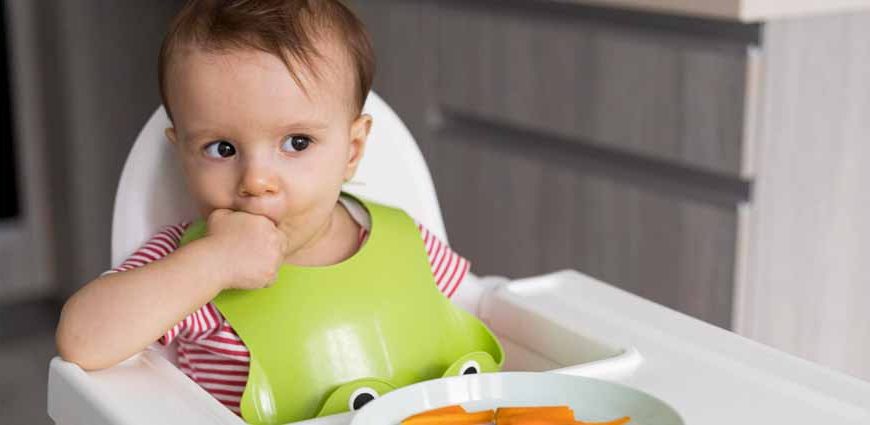For any parent, getting their child to eat a balanced supper may be a difficult task. Toddlers have a reputation for being finicky eaters, and their appetites can change significantly between meals. To promote healthy eating practices and make dinnertime pleasurable for the entire family, parents can employ a number of useful tactics.
Prepare the Right Environment:
Establishing the ideal environment is essential to encouraging a good dinnertime experience. Ensure your young child is tucked into a booster seat at the table with ease. Put toys away and turn off the TV to reduce distractions. Your kid should only be thinking about eating. To make the meal alternatives visible to your child, place the serving dishes in the center of the table. Their attention may be piqued by seeing the options available. Additionally, make sure the spoon, fork, plate, and other items your child uses are suitable for their small hands. Eating is a lot simpler when you have the correct equipment.
Stick to a Schedule:
Serving meals at about the same time each day helps set their body clock and cues hunger. Most experts recommend a daily dinner schedule between 5-6 pm for toddlers. Be consistent so their stomachs start to grumble around that hour, knowing food is coming shortly. Avoid snacks too close to mealtimes as that fills them up prematurely. Let them work up a hearty appetite so they come to dinner ready to eat.
Offer a Few Healthy Choices:
Giving some say in what goes on their plate empowers toddlers and gets them more excited to eat their meals. Give them two or three selections of healthful foods to pick from. “Would you like broccoli or carrots with your chicken tonight?” is one example. This gives kids some control over what they consume as opposed to giving them no control. Just be sure the choices you give are nutritious to promote good habits.
Serve Small Portions:
Toddlers have tiny tummies that fill up quickly. Piling their plates high with food can be overwhelming. Start with small servings of just a few tablespoons or bites worth of each item. Allow them to request more if they are still hungry after finishing their initial portions. This prevents wasting food they don’t eat and removes pressure to overeat.
Eat Together as a Family:
Sharing a meal with siblings and parents helps the youngster learn that eating is a social activity. When families eat together, it’s more pleasurable because of the socialization that occurs. Toddlers are more likely to consume their fruits, vegetables, and proteins as they like to copy their parents, older siblings, and other adults. Talk to your child at supper to make them feel included in the family get-together.
Be a Good Role Model:
Toddlers are constantly observing and picking up on the actions of their parents. They are more inclined to try healthful foods themselves if they witness you eating whole grains, lean protein, and veggies at meals. Avoid being a picky eater yourself, as that sets the wrong example. Demonstrate good eating habits by finishing most foods on your plate in a calm manner.
Cook Nutritious Meals:
For the main entrée, prepare something you know your toddler enjoys eating while mixing in additional nutrients. For example, add finely chopped vegetables to pasta sauce, rice dishes, omelets, and more. Bake chicken tenders versus frying for a healthier option. Also, get creative with fruit by making fun shapes or parfaits. Mix in some veggies or grains, too, for balance. Serve new foods alongside familiar items to aid the transition to more diverse eating.
Avoid Battles over Food:
If your toddler refuses certain items or is reluctant to eat much at a meal, don’t force them. Requiring them to clean their plate or insisting they try bites can lead to power struggles. This negative association can impact long term eating habits. Continue regularly offering new foods without the pressure to instill awareness. Let your toddler eat as much or as little as they wish at their own pace. Their appetites and tastes evolve rapidly at this young age.
Use Positive Reinforcement:
When your toddler does try a new item or eats most of their dinner, provide enthusiastic praise. You can say things like “Hooray, you tried your peas!” or “You finished your salmon, good for you!” Sticker charts, stars, and fun desserts like fruit popsicles also motivate. Just be sure rewards are given for effort, not used as bribes. This encourages self-assuredness versus defiance.
Remain Patient and Consistent:
The early years lay the foundation for health and nutrition. But, developing excellent eating habits takes time. There will inevitably be fussy periods, messes made, and food thrown. As frustrating as this can get, remain calm and constant with structured mealtimes. Be flexible some nights but regularly reintroduce rejected items. With your steady guidance, your toddler’s tastes and nutrition will continue maturing.
Get Creative with Food Presentation:
Toddlers eat with their eyes first. Dull, undecorated plates do little to ignite their interest. Make food fun by cutting them into cute shapes with cookie cutters or slicing fruits and cheeses into stars, hearts, or squares. Create rainbow skewers mixing together their favorite colorful veggies. Form mashed potatoes or rice into a happy face topped with peas and carrots. Arrange sliced turkey, cheese, and crackers into playful patterns. Use smaller plates and serve dipping sauces for dunking. Getting creative with textures and visuals makes eating more thrilling.
Allow Messy Exploration:
Learning to self-feed with utensils is a process requiring patience. Expect spilled drinks, dropped food, and smeared faces. Rather than scolding over the mess, allow this exploration to encourage independence. Place a splash mat or sheet under their chair to catch fallen scraps easily swept up after dinner. Introduce a divided plate with separated sections to teach component eating. Have damp washcloths handy for quick cleanups, letting your toddler wipe their own face and hands when finished. Reassuring them of spills and clumsiness while learning is okay.
Say No to Power Struggles:
As difficult as mealtimes can get, avoid turning eating into a battle. If your toddler refuses to eat or wants down midway through dinner, respect their choice calmly. Forcibly spoon feeding or requiring “just 2 more bites” intensifies resistance. Stay positive, keeping dinner conversation light. After a quick hug and reassurance that their unfinished plate will be saved, let them go play quietly while the family finishes dinner. Never use a meal as punishment either, like sending them to their room without food. This unhealthy dynamic damages their relationship with eating long-term.
Stick to the Routine:
Navigating the habits of picky eaters, gigantic messes, and unpredictable appetites daily is frustrating. The phrase “I’m done!” or “I don’t like it!” can quickly trigger anger over wasted effort in preparing nutritional meals. But toddlers crave structure and consistency empowering them. Stick to scheduled family dinners with reassurance. Over time, they will come to depend on dinner hour bonding and gain confidence trying new items offered frequently without pressure. With your steady patience directing the process, their eating improves.
Promoting healthy eating habits in toddlers has lifelong benefits, including reduced disease risks, healthy growth, and proper development. It does require parental patience, creativity, and consistency, though. Utilize strategies like scheduled mealtimes, family dining, good role modeling, and positive reinforcement. Avoid pressuring or battles over food that backfire. With your support guiding balanced nutrition now, your toddler will reap the rewards for years to come.
For more such interesting blogs, Visit EuroKids

















